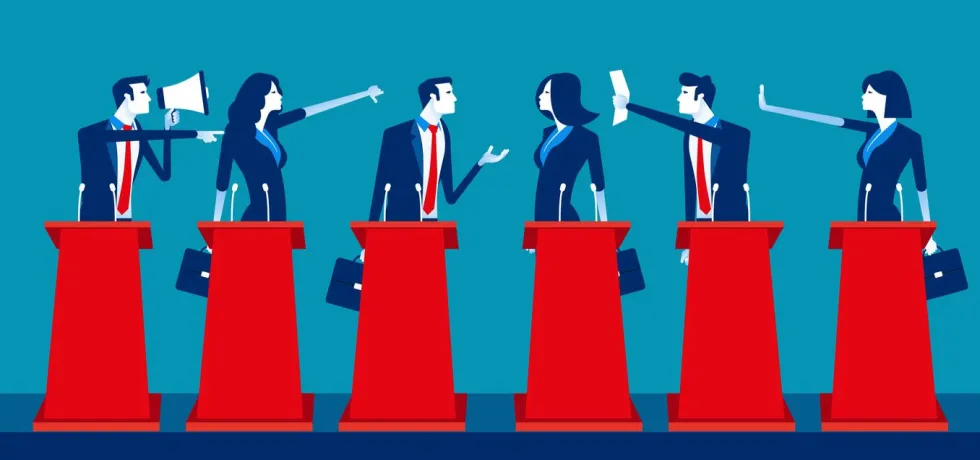The Election
The election this year (2024) has been one for the history books. So many young people that I know of, myself included, have gained an interest in politics that wasn’t there before. And for the last couple of weeks, maybe even months, politics is all that’s been on anyone’s lips.
Students have election polls up, phones out for news coverage, and not games, social media is being used to post political after political post. Why? Because it is all anyone wants to know. Who’s leading? What states are what? Did you vote? Who’d you vote for? And so on, but most of all, students seek out their teachers’ opinions. The person they see so often. A person they respect.
What do teachers have to say?
The average teacher’s response to most things politically involved is, “I can’t answer that” or at least something along those lines. But, from time to time, you do get one or two opinions out of a teacher.
A teacher here in Pitman High, Mrs. Cooke, who teaches English, is also known as the advisor for the democratic club for Pitman. But except for that correlation to politics Mrs. Cooke is evident not to share her political beliefs to her normal classes.
“No, during class I steer clear of sharing my political views. However, because political beliefs are inextricably linked with personal values, astute students may be able to figure out my beliefs if they try. I do my best to abide by this directive from California Ed Code: ARTICLE 2. [7050 – 7058] (Article 2 added by Stats. 1977, Ch. 36.)”
Mrs. Cooke, despite being the advisor for a political group, is pretty closed off about her more personalized opinions on politics. When asked, “Is politics an issue here at Pitman?”, her answer was,
“It is an issue in that we have not given the students the tools to discuss political matters. Somewhere along the line, politics became a dirty word. When I was in high school my friends and I discussed politics regularly. About half were Republican and the other half Democrat. We debated issues, but it was always civil and usually led to lots of laughter. We all mostly agreed on the same end goals, but we disagreed on the best ways to get there.”
Another educator here at John H. Pitman High, Ms. Smith, the freshmen ASB advisor and an English teacher, was also asked the same question, “Is politics an issue here at Pitman?”,
“Yes, I do.”
She was also asked if he shared her political beliefs with her other colleagues.
“Yes, I do.”
“Is politics a normal matter spoken about in the lunchrooms?”
“Yes, I would say we are very open with one another. I’m friends with people on all spectrums of political beliefs. I have been for over twenty years, and I have never ended a friendship over politics.”
Then & Now
It seems to most that politics have become more of a sensitive and closed off topic. Even though most students talk about politics amongst themselves, or teachers with one another in the lunchroom, being a little too public with your political opinion isn’t always the safest option.
I have known many people who find politics either entirely boring and others who live their lives by politics. Whether it be one or the other, it’s not healthy. Politics is a big part of our world, that is understandable, but sometimes, people take things far.
As Mrs. Cooke has stated before, politics used to be a civil topic, one that led to laughter and joy, not to hatred and distaste like it does now. Even her own opinions have changed since then. When asked, “Does your perspective on someone change due to their political beliefs?”
“Up until about ten years ago, no. Now, yes.”
Evidently the value of someone’s political views or opinions have taken a drastic increase. Whether it be a democratic or a republican, or even a libertarian, people have started to judge one another on their stance with politics, and deciding most of their views, or perspectives of that person based on it.
